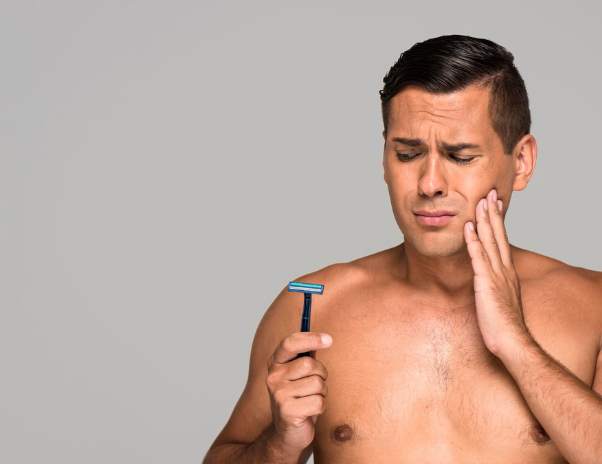
Posted date on Jun 19, 2023
The monsoon season brings with it a symphony of raindrops and a breathtaking ambiance. While we indulge in the beauty of the downpour, our skin often pays the price for the moisture-laden environment. The increased humidity, dampness, and fluctuating temperatures during the monsoon can lead to various skin issues. In this blog, we will delve into common skin concerns that arise during this season and provide you with valuable tips to keep your skin healthy, radiant, and well-nourished throughout the monsoon season.
The monsoon season brings a unique set of challenges for those with acne-prone skin. The combination of excess humidity and increased sebum production can create a breeding ground for breakouts. The high moisture content in the air tends to trap dirt, oil, and impurities on the skin's surface, leading to clogged pores and those pesky pimples. However, fear not, as there are simple yet effective steps you can take to combat acne and keep your skin clear and healthy during this rainy season.
1. Prioritise Moisturization
It's important to debunk the most common misconception that the increased humidity during the monsoon season automatically means well-hydrated skin. In fact, the higher moisture content in the air can exacerbate dry skin and eczema. Choose thick, emollient-rich moisturisers that can replenish and seal in moisture. It's best to apply these moisturisers immediately after bathing to lock in hydration and prevent moisture loss.
2. Avoid Long, Hot Showers
Hot water can strip away the skin's natural oils, further contributing to dryness. Instead, opt for short, lukewarm showers to minimise the drying effect on your skin.
3. Choosing the right cleanser
Cleansing plays a crucial role in maintaining clear skin. It is important to cleanse your face twice a day using a gentle, pH-balanced cleanser. This practice helps remove the accumulated dirt, excess oil, and impurities, preventing them from clogging your pores. By incorporating this cleansing routine into your daily skincare regimen, you can minimise the likelihood of breakouts caused by the humid conditions. Choose mild, soap-free cleansers that do not strip away the skin's natural oils. Also, look for products that contain ingredients like ceramides and hyaluronic acid, as they can help restore the skin barrier and retain moisture, promoting healthier and more hydrated skin.
4. Chemical Exfoliation
Another essential step is regular exfoliation. Opt for gentle exfoliants that contain ingredients like salicylic acid. Salicylic acid is known for its ability to penetrate the pores and remove the build-up of oil and debris, effectively unclogging the pores and helping to control acne. If you are unsure of which product is best suited for your skin, consult a dermatologist.
5. Sun Protection
Finally, do not underestimate the importance of sun protection, even on cloudy days. Harmful UV rays can penetrate through the clouds and cause damage to your skin, exacerbating acne and leading to post-inflammatory hyperpigmentation. Therefore, it's essential to shield your skin from the sun's rays by using a broad-spectrum sunscreen with at least SPF 30. Remember to reapply it every few hours, especially if you spend extended periods of time outdoors.
Moving further on, moist environments during the monsoon season create the perfect breeding ground for fungal infections. To keep these infections at bay, here are some important changes to incorporate into your daily routine:
a. Personal Hygiene:
Maintain good personal hygiene by keeping your skin clean and dry, especially in areas prone to sweating, such as the underarms, and feet. Using antifungal powders or talc can help absorb excess moisture and prevent fungal growth.
b. Clothing Choices
Opt for loose-fitting clothes made of breathable fabrics like cotton. These fabrics allow air circulation and minimise sweating, reducing the risk of fungal infections.
c. Foot Care:
Pay extra attention to your feet as they are susceptible to fungal infections. Wear slides or sandals that allow proper ventilation between your toes, and always ensure your feet are thoroughly dried after washing.
d. Avoid Sharing Personal Items
Sharing towels, razors, or other personal items can lead to the spread of fungal infections. Keep your personal items separate to minimise the risk of attracting more infections.
Nurturing your skin during the monsoon season is essential to maintain its health, radiance, and vitality. By understanding the specific challenges posed by the increased humidity and dampness, you can adapt your skincare routine to combat acne, fungal infections, and dryness. So, go ahead and take care of your skin, because when it comes to the monsoon season, the rain may be pouring, but your skin can shine with unparalleled beauty.




